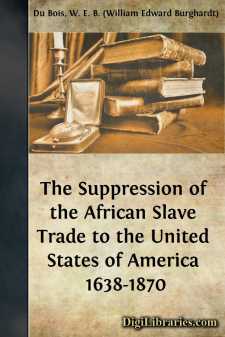Categories
- Antiques & Collectibles 13
- Architecture 36
- Art 48
- Bibles 22
- Biography & Autobiography 813
- Body, Mind & Spirit 142
- Business & Economics 28
- Children's Books 17
- Children's Fiction 14
- Computers 4
- Cooking 94
- Crafts & Hobbies 4
- Drama 346
- Education 46
- Family & Relationships 57
- Fiction 11829
- Games 19
- Gardening 17
- Health & Fitness 34
- History 1377
- House & Home 1
- Humor 147
- Juvenile Fiction 1873
- Juvenile Nonfiction 202
- Language Arts & Disciplines 88
- Law 16
- Literary Collections 686
- Literary Criticism 179
- Mathematics 13
- Medical 41
- Music 40
- Nature 179
- Non-Classifiable 1768
- Performing Arts 7
- Periodicals 1453
- Philosophy 64
- Photography 2
- Poetry 896
- Political Science 203
- Psychology 42
- Reference 154
- Religion 513
- Science 126
- Self-Help 84
- Social Science 81
- Sports & Recreation 34
- Study Aids 3
- Technology & Engineering 59
- Transportation 23
- Travel 463
- True Crime 29
W. E. B. (William Edward Burghardt) Du Bois
William Edward Burghardt Du Bois, commonly known as W.E.B. Du Bois, was a pioneering African American sociologist, historian, and civil rights activist. Born on February 23, 1868, in Great Barrington, Massachusetts, he co-founded the National Association for the Advancement of Colored People (NAACP) in 1909 and was a prominent advocate for African American rights and education. Du Bois is well-known for his seminal work, "The Souls of Black Folk" (1903), which explores the complex experience of African Americans in the post-Civil War United States and introduces the concept of "double consciousness."
Author's Books:
Sort by:
One Night fell. The red waters of the swamp grew sinister and sullen. The tall pines lost their slimness and stood in wide blurred blotches all across the way, and a great shadowy bird arose, wheeled and melted, murmuring, into the black-green sky. The boy wearily dropped his heavy bundle and stood still, listening as the voice of crickets split the shadows and made the silence audible. A tear wandered...
more...
THE CONSERVATION OF RACES The American Negro has always felt an intense personal interest in discussions as to the origins and destinies of races: primarily because back of most discussions of race with which he is familiar, have lurked certain assumptions as to his natural abilities, as to his political , intellectual and moral status, which he felt were wrong. He has, consequently, been led to...
more...
Of Our Spiritual Strivings O water, voice of my heart, crying in the sand,All night long crying with a mournful cry,As I lie and listen, and cannot understandThe voice of my heart in my side or the voice of the sea,O water, crying for rest, is it I, is it I?All night long the water is crying to me. Unresting water, there shall never be restTill the last moon droop and the last tide fail,And the fire of...
more...
I THE SHADOW OF YEARS I was born by a golden river and in the shadow of two great hills, five years after the Emancipation Proclamation. The house was quaint, with clapboards running up and down, neatly trimmed, and there were five rooms, a tiny porch, a rosy front yard, and unbelievably delicious strawberries in the rear. A South Carolinian, lately come to the Berkshire Hills, owned all this—tall,...
more...
Chapter I INTRODUCTORY.1. Plan of the Monograph.2. The Rise of the English Slave-Trade.1. Plan of the Monograph. This monograph proposes to set forth the efforts made in the United States of America, from early colonial times until the present, to limit and suppress the trade in slaves between Africa and these shores. The study begins with the colonial period, setting forth in brief the attitude of...
more...
THE CONSERVATION OF RACES. The American Negro has always felt an intense personal interest in discussions as to the origins and destinies of races: primarily because back of most discussions of race with which he is familiar, have lurked certain assumptions as to his natural abilities, as to his political, intellectual and moral status, which he felt were wrong. He has, consequently, been led to...
more...
"Behold!The Sphinx is Africa. The bondOf Silence is upon her. OldAnd white with tombs, and rent and shorn;With raiment wet with tears and torn,And trampled on, yet all untamed."MILLER Africa is at once the most romantic and the most tragic of continents. Its very names reveal its mystery and wide-reaching influence. It is the "Ethiopia" of the Greek, the "Kush" and "Punt"...
more...








